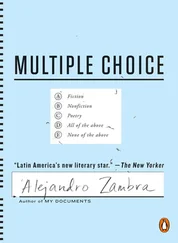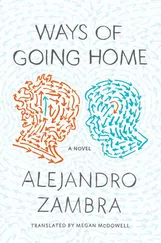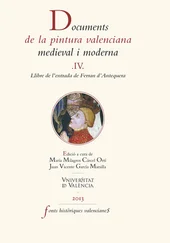According to the Champix information brochure, in addition to the nausea and cephalalgia, possible side effects include abnormal dreams, insomnia, drowsiness, dizziness, vomiting, flatulence, dysgeusia, diarrhea, constipation, and stomach pain. The abnormal dreams don’t bother me, because my dreams have never been normal. But I’m troubled by the bit about insomnia and drowsiness; I wonder if they can happen at the same time, like love and hate. Dysguesia (change in taste) is great. I would love to excuse myself sometime by saying, “I’m sorry, but I have dysguesia.” What supreme elegance.
There are also those rumors about Champix that tend to appear in the paper’s science section, which I don’t give any credit to because I don’t believe in the paper’s science section. What a giant lie, the science section: on Monday they report on important studies at prestigious universities about the virtues of wine or almonds, and on Wednesday they say that both are bad for you. I remember that verse from Nicanor Parra: “Bread is bad for you / all foods are bad for you.” It’s like the horoscope section: last week it said the same thing on Monday for Libra that it said on Saturday for Pisces.
In any case, the rumors are that many people who take Champix start having suicidal thoughts. I read on the Internet that in the span of a year, 227 cases of attempted suicide were reported, along with 397 cases of psychotic disorders, 525 cases of violent behavior, 41 cases of homicidal thoughts, 60 cases of paranoia, and 55 cases of hallucinations. I don’t believe any of that.
My big problem up to now has been my hands. I don’t know what to do with my hands. I hold on to my pockets, railings, my cheeks, Bubble Wrap, cups. Most of all to cups: I get drunk faster now, which isn’t really a problem — everyone around me understands.
It bothers me, that unanimous approval of what some people call — cigarette in hand—“my brave decision.”
“I admire you,” one horrible person told me today, and then added, with a studied, somber gesture: “I sure couldn’t do it.”
•
“Are you smoking?”
“No, Mom, I’m praying.”
•
It’s day thirty-five of the treatment, day twenty-one without smoking.
I had lunch with Jovana, downtown. She can’t believe that I’ve stopped smoking. She smokes happily and I’m envious, although I must admit that, secretly, I have a newfound feeling of satisfaction, though it’s ambiguous, because this hasn’t taken any effort on my part: the medicine has simply taken over.
“We are the only minority that no one defends,” Jovana told me, laughing, speaking in that warm, thick voice of hers, that smoker’s voice. Right away she adds, as if representing all the world’s smokers: “We were counting on you.”
Then she told me it was impossible for her to remember her father — who died recently — without a cigarette between his lips. He would sometimes go out very early, unexpectedly, and when someone asked where he was going, he would answer, energetically: “To kill off the morning!” What great wisdom, I think. To walk: to just walk and smoke to kill the morning.
I think that I am reeducating myself in some unknown aspect of life.
I move some old files, and I find this note from a year ago: I have a cut on my finger that keeps me from smoking well. Everything else is okay .
•
What for a smoker is nonfiction, for a non-smoker is fiction. That majestic story by Julio Ramón Ribeyro, for example, about the smoker who desperately jumps out the window to rescue a pack of cigarettes, and who, years later, very ill, his wife keeping a vigilant watch over him, escapes to the beach every day to unearth, with the skill of an anxious puppy, the pack of cigarettes he had hidden in the sand. Non-smokers don’t understand these stories. They think that they’re exaggerated; they read them cavalierly. A smoker, on the other hand, treasures them.
“What would have become of me if the cigarette hadn’t been invented?” writes Ribeyro in 1958, in a letter to his brother. “It’s three in the afternoon and I’ve already smoked thirty.” Then he explains, quoting Gide, that writing is “an act that complements smoking.” And in a later message he signs off with: “I only have one cigarette left, and so I declare this letter over.”
I could smoke without writing, of course, but I couldn’t write without smoking. That’s why I’m scared now: what if I quit writing? The only thing I’ve been able to write since I quit are these notes.
•
I’ve just arrived in Punta Arenas. I was able to read on the plane for the first time ever. Because I started traveling when I was already grown up, I was never on a flight where you could smoke, and if I couldn’t smoke, I couldn’t read either. The presence of the ashtrays in the armrests made me nervous.
I remembered that brilliant and unequivocal phrase of Italo Svevo’s: “Reading a novel without smoking is impossible.”
But it’s possible, it is. I don’t remember anything I read, though. I read badly. I don’t know if I’ve just read a good novel badly or a bad novel well. But I read, it’s possible.
I just closed this document without mentioning my relapse. Marvelous, you lied to your journal, asshole. I have to record it. It was in the Punta Arenas cemetery. I wanted to go there to remember a poem of Lihn’s that talks about “a peace that fights to smash itself to bits.” It’s the impression that remains after looking at the cypresses there (“the double row of obsequious cypresses”), the inspired mausoleums, the cradle-shaped graves of dead babies, the headstones with words in other languages, the meticulously tended alcoves, the miraculously fresh flowers. I looked at the sea while Galo Ghigliotto played with some blocks of ice in the birdbath, and my host, Óscar Barrientos, visited some family graves. Then we left, walking in silence. I was thinking about the peace Lihn wrote about, that peace that fights to smash itself to bits. And suddenly, as if it were nothing, I asked Galo for a cigarette, and only on the fourth or fifth drag did I remember that I had quit smoking. Only then did I taste the bitterness, feel the intense aversion. I finished it, but it took effort.
•
I really don’t smoke anymore, I think.
I really don’t think anymore, I smoke.
The medicine won’t let me smoke.
•
Day forty / twenty-six.
I carry Sacks’s book in my bag, underlined, ready to show the doctor that nothing points to a relationship between smoking and cluster headaches. “Sacks is entertaining,” the neurologist replies. But he says he’s not sure he’s read him. I point out the contradiction in what he has just said: how does he know that Sacks is entertaining if he hasn’t read him? He doesn’t hear me. I get aggressive. “Doctors used to read,” I tell him. “In the past, doctors were cultured.”
He doesn’t seem offended, but he looks at me the way someone would look at an alien — the way someone like the doctor would, not someone like me. I would certainly never look at an alien like that, showing such clear surprise.
I offer to lend him Sacks’s book, but he declines. Now he does get mad. He lectures me like I’m a child. He rails against cigarettes with such insistence that I feel like he is telling off someone that I love, someone who doesn’t deserve this kind of criticism. But what I want most in the world is for my head to never hurt again. I’ll go on with the treatment, of course I will. I have faith.
I remember those verses that Sergio likes, from a poem by Ernst Jandl, I think: “The doctor has told me / that I cannot kiss.”
As for me, the doctor has told me that I cannot smoke.
•
Читать дальше












